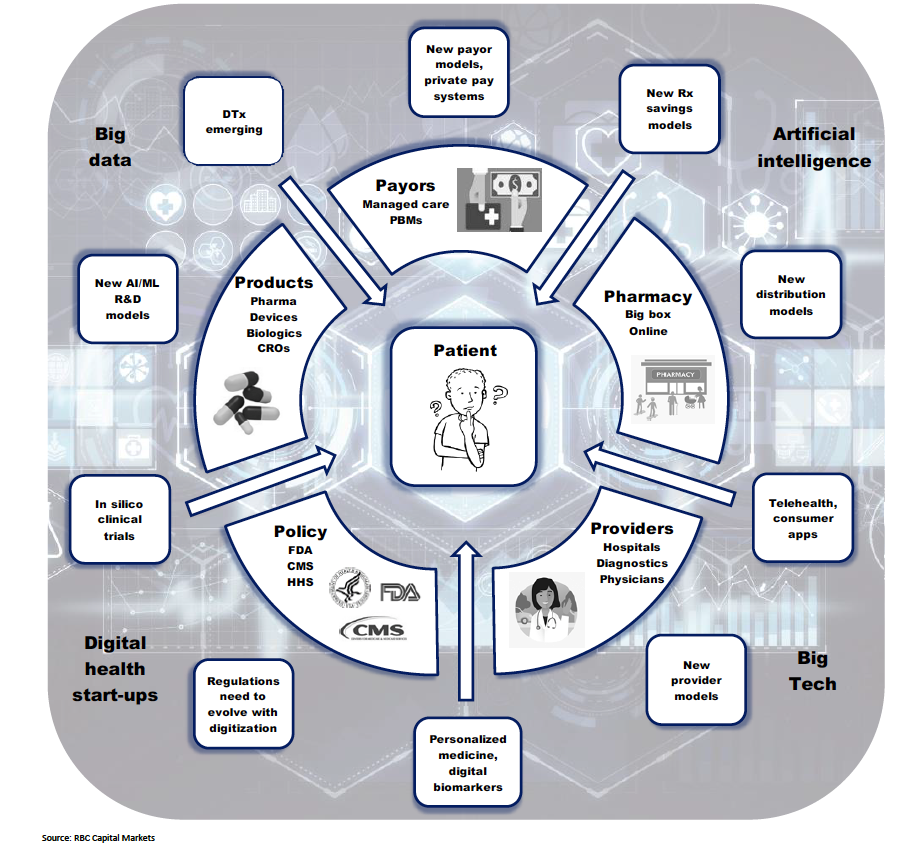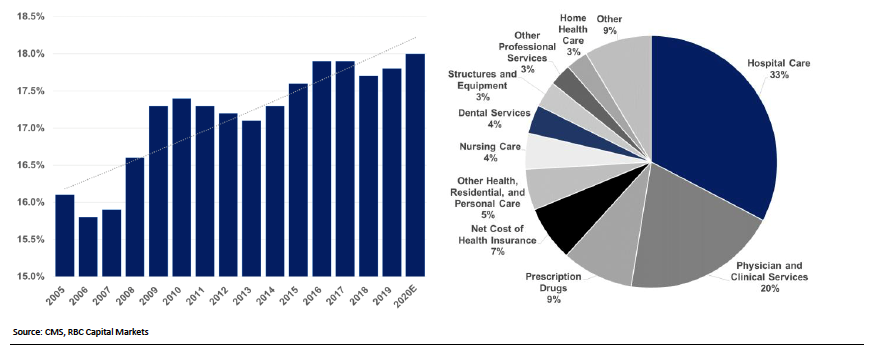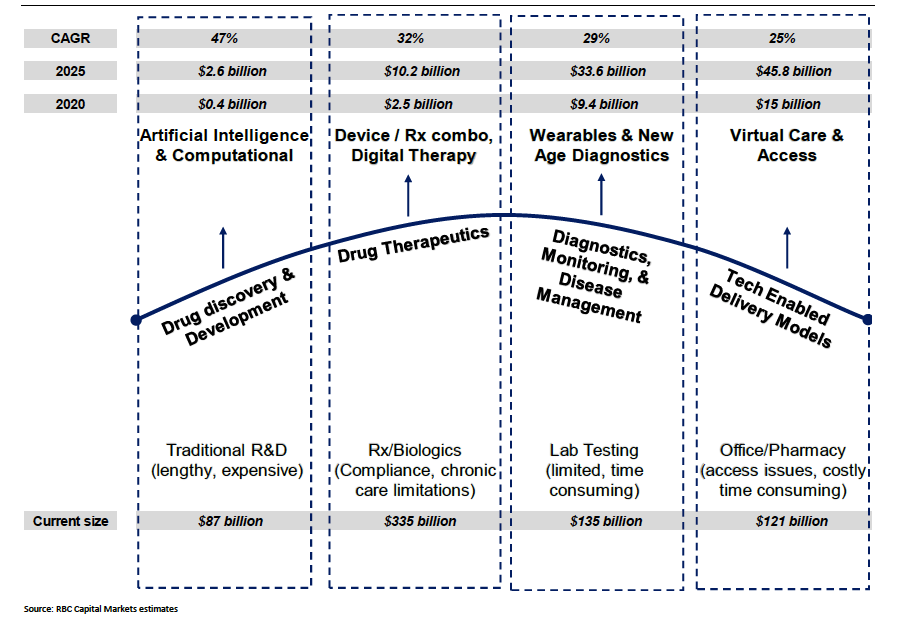The healthcare industry has been stubbornly resistant to large-scale technological disruption. But now, it appears that the elements necessary to advance a shift to Digital Health are finally falling into place.
Innovations in Big Data and AI, coupled with a healthcare environment increasingly digitalized by the COVID-19 pandemic, are driving this acceleration. Also, the healthcare sector can no longer resist pressure from Big Tech and well-funded start-ups, focusing on patient-centric models that will force traditional healthcare models to evolve.
We don’t expect the complex healthcare ecosystem to be completely upended. But by 2025, we believe the convergence of tech and healthcare will create a $92B market opportunity for tech companies in areas such as AI-enabled R&D platforms, digital therapeutics, and diagnostics and disease management.
Disclosure and Disclaimers
Here are the key takeaways from our report:
Emerging models are changing traditional healthcare
Our current healthcare system may best be described as heavily siloed and inefficient.
The major players in Digital Health—including large pharma, Big Tech, AI, and data—all contribute to developing drugs, treating diseases, and delivering healthcare. Patients—who are now the main drivers of healthcare decisions—sit at the center of this ecosystem and are surrounded by the traditional components, namely payers, providers, and pharmacies.
Emerging patient-centric models are now creating “cracks” in this façade, creating ample opportunities for Big Tech and start-ups to help address inefficiencies and patient outcomes.

New ways to improve efficiencies and reduce spend on chronic care
CMS expects U.S. healthcare spending to top $4T this year, and more than 5% growth per year through 2028, outpacing GDP. This growth creates ample opportunities for companies to improve efficiencies and reduce spend in areas such as chronic care management. For example, 60%+ of U.S. adults have at least one chronic condition and spending for these ailments adds up to ~$2.5T per year.
But, healthcare is incredibly fragmented across the continuum of care. For instance, drug prices comprise 9% of total healthcare spending at ~$335B with a 10-year CAGR of 3.4%, which is notably below the overall growth of healthcare.
 Annual US healthcare spend as a % of GDP (left) versus breakdown of 2019 US national healthcare expenditures by function (right)
Annual US healthcare spend as a % of GDP (left) versus breakdown of 2019 US national healthcare expenditures by function (right)
Near-term opportunities for Big Tech may reach $92B in 2025
We believe the convergence of tech and healthcare will create ample opportunities in:
- R&D/drug development
- Digital medicine, including therapeutics (DTx) and other digital interventions
- Devices, diagnostics, and disease management
- Delivery of care efforts focused on improving access to and quality of care and the overall efficiency of payers and providers.
These four areas collectively comprise a $27B market that we expect to grow at a 28% CAGR to $92B in 2025.

A clear road to digitalization, with a few possible hurdles
We believe growing capital, record private investment, and pandemic-led changes in patient behavior may help healthcare digitalization finally take root.
But, we also recognize that there’s always room for potential “surprises” that can either accelerate or disrupt this evolution, such as a prolonged or unpredictable course for the pandemic, Big Tech acquisitions of traditional healthcare companies, or the expansion of existing workplace healthcare ecosystems.
The Global Research Team authored “Imagine 2025: Digital Health--Hitting Fast Forward,” published on November 12, 2020. For more information about the full report, please contact your RBC sales representative
